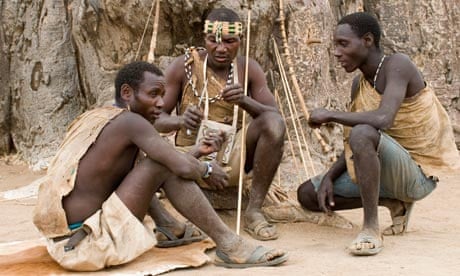 |
| theguardian.com |
All of us, absolutely all of us, belong to that family. If ever the Siren call of what we call "race" once tempted us to think that having blue eyes, or pale skin was a sign of superiority to people who have brown eyes or deeper toned skin, then it is long since past time to admit that "race" is a fiction.
Siren call? The Sirens, of Greek mythology, were dangerous creatures who lured sailors to come their way, and their way was to a shipwreck. Their voices were sweet, and musical. Something like thinking that being White makes one superior. Going that way is to listen to a Siren song.
Jared Diamond wrote, "Guns, Germs, and Steel", to show how finding ourselves pitched on valuable resources, or devastated by rampaging disease can make or break societies. For instance, most great human societies congregated around river valleys (water, rich soil, available food, navigation), and so on. The people who found themselves in North America did not invent this rich continent: we stumbled upon it, the way life has stumbled over the whole globe.
I am reading, again, the story of the Comanche people who dominated the Great Plaines, finally overrun by newcomers to this continent who simply overwhelmed them finally, awfully, inevitably. There are Sirens calling to us about that, too, suggesting what is not true about either the Comanches or the rest of us.
The real evidence of who we are is present in almost every kind of cell in our bodies.
I recall saying to myself once, that all the information that made my life possible began with a tiny piece of my father's body, and of my mother's body, curled together in me. But it is a much richer story than that; a better story, still.
Comments
Post a Comment